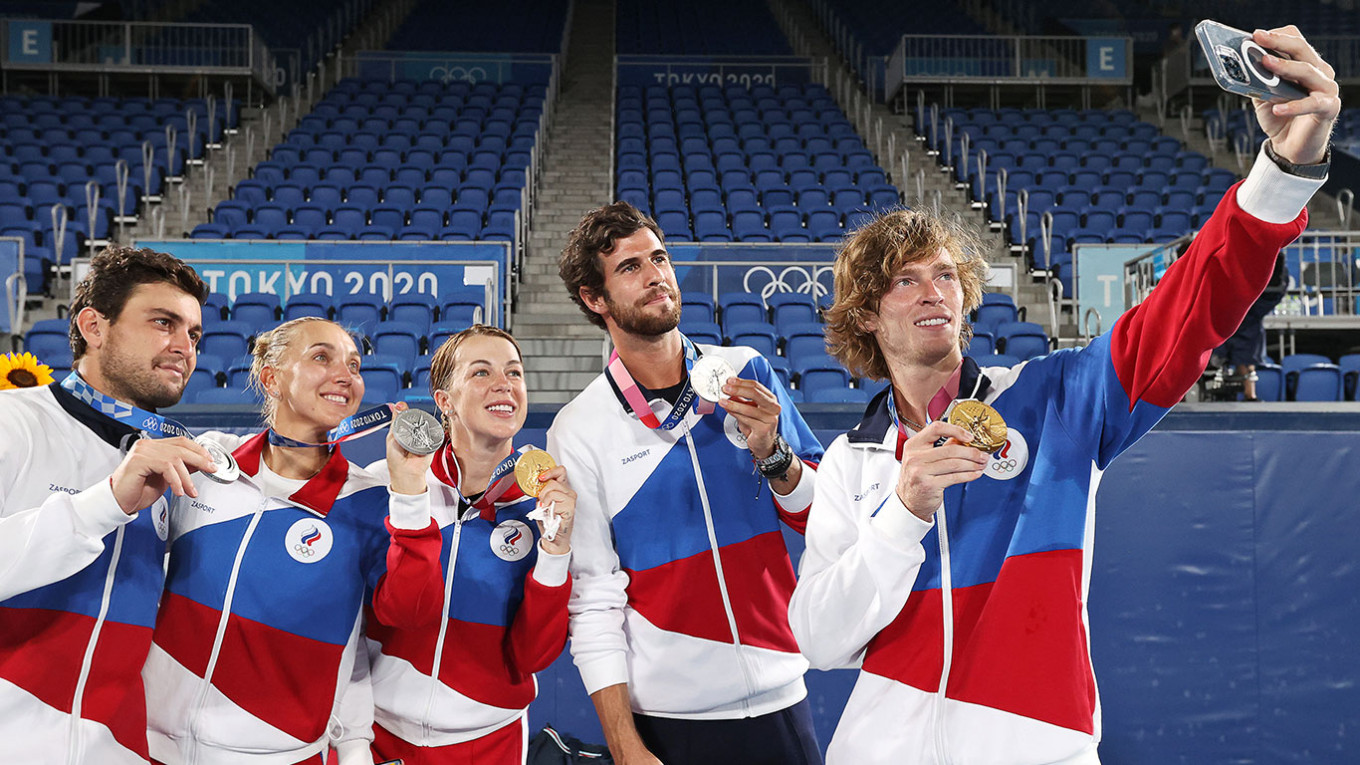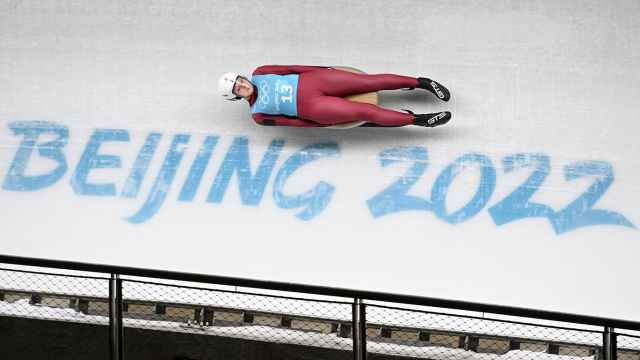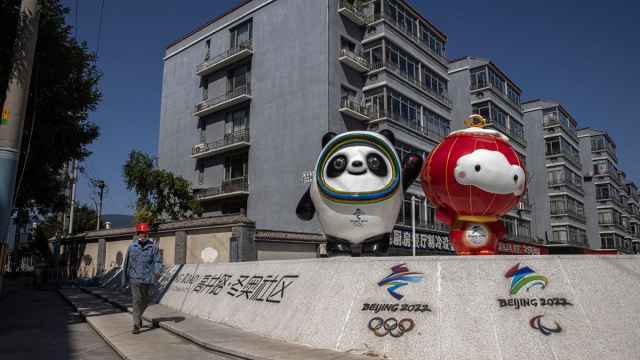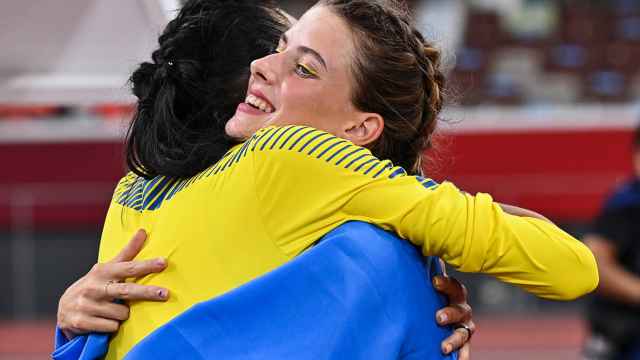Russia is emerging as a winner in the Tokyo Olympics despite the efforts of the International Olympic Committee to hold the country accountable for the systematic doping that took place during the 2014 Sochi Winter Olympics.
Tokyo 2020 shows that a “rally around the flag” effect is possible even if the flag is banned.
A 2014 German television documentary exposed the doping scheme, using testimony from two Russian whistleblowers. Russia was then banned from fielding a national team at the 2016 Rio Olympics. In 2019 the Court of Arbitration for Sport in Switzerland banned Russia from international sports for four years, citing failure to comply with the investigation, but that ban was cut to two years on appeal in 2020.
In Tokyo, 330 athletes are competing as the “Russian Olympic Committee” (ROC). They are forbidden to sing the Russian national anthem or display the national flag — though they are allowed to wear uniforms with the flag’s colors of red, white and blue. The ROC was limited to just 10 athletes in track and field and two weightlifters: sports which have been at the epicenter of doping.
But no one is fooled. Everyone knows the athletes are Russian, and the ROC is currently sitting in third place in the overall medals table. Gary Lineker, the British former footballer and commentator, ironically noted on Twitter that the ROC is “surely the most successful committee in Olympic history.” Travis Tygart, the head of the U.S. Anti-Doping Agency, called the ban a “farce.”
Far from being remorseful, Russia has seized on the ban as just the latest in a long line of Western efforts to denigrate the country, noting that the Soviet Union was not allowed to join the Olympics until 1952. Russian media praise the ingenuity of officials for working around the ban and the heroism of their athletes triumphing in the face of adversity.
In a promotional video launching coverage of the Games, Foreign Ministry spokeswoman Maria Zakharova comes out fighting — literally. With boxing gloves, she pummels a mannequin labelled “Press.” When a journalist asks what she thinks about the Russian anthem being replaced by a Tchaikovsky piano concerto, she answers “Good. They’ll be hearing a lot of classical music,” meaning ROC athletes will win many gold medals. She closes with the slogan “We will ROC you,” and the Instagram hashtag #wewillROCyou is part of the official state rhetoric.
Match TV, the official Olympic broadcaster in Russia, refers to the athletes not as ROC but as “Nashi” (Ours), a term also associated with Crimea (“Crimea is Ours!”). The emotional attachment and national sentiment linked to “ours” boosts Russian pride and loyalty to the state.
Public interest in Russia in the run-up to the Games was lackluster. A poll by WCIOM on the eve of the Games found that 97% of respondents could not name a single ROC athlete. But individual athletes don’t matter: what is important is the team, whatever it is called. The Games are quite popular on TV, with 20% of viewers having tuned into the opening ceremony.
Russian media have gleefully noted American failures, including the first time since 1920 that the U.S. won no medals in tennis, the first since 1972 that the U.S. got no medals on the first day and the first U.S. defeat in men’s basketball since 1992, etc.
U.S. athletes who complain about Russian doping are depicted as sore losers. American Ryan Murphy said the 200m backstroke final was “probably not clean” after he lost his Olympic title to Russian Evgeny Rylov, triggering condemnation from Russian political figures. Russian tennis player Daniil Medvedev admonished an American journalist who asked about the “stigma of cheaters,” and he was enthusiastically supported by Putin’s spokeman Dmitry Peskov. Russian parliamentarians lashed out at U.S. rower Megan Kalmoe for saying that seeing the ROC crew with a silver medal is a “nasty feeling.”
Of course Russia is not alone in treating the Olympics as a platform for displays of national pride and unity. Nationalism has been hard-wired into the Olympics since its foundation, alongside competing goals of individual accomplishment and cross-national reconciliation. Small nations rejoice on the rare occasions when they strike gold, while larger countries put huge efforts into moving up the medals table.
Chinese athletes are under intense pressure to win gold and those who fall short are often sometimes attacked on social media. The Chinese authorities have criticized judges and rival athletes when Chinese gymnasts and table tennis players have lost to the Japanese.
The success of the 2012 London Olympics played an important role in Boris Johnson’s path to No. 10 as he was mayor of London at the time. Some British commentators are complaining about the hyperventilating nationalism that dominates coverage of Team GB in Tokyo.
National unity
Of course national unity can be a good thing, in countries facing internal divisions, for example. Researchers have found that qualifying for the Africa Cup of Nations and the FIFA World Cup correlates with less ethnic conflict.
The International Olympic Committee needs the backing of large countries to fund the ever-more-expensive Games, and if nationalism is needed to win their support, so be it. In 2019 international skiing chief Gian Franco Kasper was perhaps a little too candid when he said “everything is easier in dictatorships,” in reference to the awarding of the 2022 Winter Olympics to China.
The ROC athletes can expect a heroes’ welcome on their return to Russia. They will be treated as a winning team. A team named Russia.
A Message from The Moscow Times:
Dear readers,
We are facing unprecedented challenges. Russia's Prosecutor General's Office has designated The Moscow Times as an "undesirable" organization, criminalizing our work and putting our staff at risk of prosecution. This follows our earlier unjust labeling as a "foreign agent."
These actions are direct attempts to silence independent journalism in Russia. The authorities claim our work "discredits the decisions of the Russian leadership." We see things differently: we strive to provide accurate, unbiased reporting on Russia.
We, the journalists of The Moscow Times, refuse to be silenced. But to continue our work, we need your help.
Your support, no matter how small, makes a world of difference. If you can, please support us monthly starting from just $2. It's quick to set up, and every contribution makes a significant impact.
By supporting The Moscow Times, you're defending open, independent journalism in the face of repression. Thank you for standing with us.
Remind me later.






